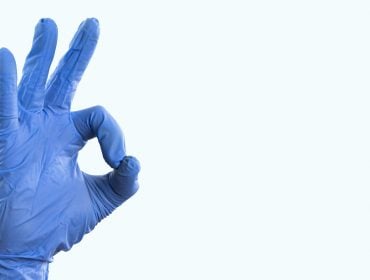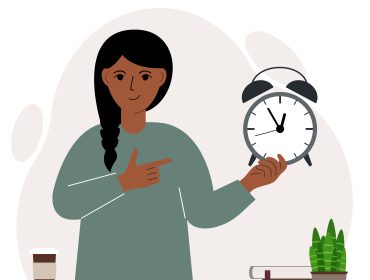Hemorrhoids or HPV?
You might wonder if there’s a link between HPV and hemorrhoids. While both conditions affect the anal area, their causes differ. Hemorrhoids arise from swollen veins in your rectum or anus, often due to pressure or straining.
On the other hand, HPV triggers anal warts through skin contact with the virus, these aren’t piles but growths that could lead to more serious issues if left unchecked. Exploring clinical trials offers access to new treatments for these distinct but troublesome conditions, paving the way toward potentially groundbreaking cures.
Understanding Hemorrhoids and HPV
Hemorrhoids, often called piles, swell up inside your bottom. Think of them as varicose veins in that spot. They hurt and itch a lot when you sit or do your business.
Sometimes they bleed too, bright red blood right after you go is a big clue. Though painless at times, internal ones can slip out (prolapse), which hurts more. Now anal warts, they come from HPV and look like tiny soft bumps around the privates or anus; some say cauliflower-like clusters emerge if unchecked early on.
Unlike hemorrhoids causing their specific discomforts mainly during strainings such as bowel movements, these warts might not even cause an itch but are super contagious through skin touch. Both troubles bleed sometimes so it’s tricky to tell apart without expert eyes, a doctor will steer clear this confusion for sure with just one look most times! Treatment varies: frozen off for stubborn warts versus creams or simple fixes for those painful swells down there.
Remember though, if left alone serious issues can spring up especially with HPV’s link to cancer types rare yet grave enough to scare us all proper into checking our health status double quick! But here’s something crucial: does having HPV mean you’ll get hemorrhoids? No direct line joins the two dots, yet being aware pays off since both hit near each other making care critical.
Link Between HPV and Hemorrhoid Development
You need to know, HPV doesn’t cause hemorrhoids. Yet it might make them worse. Hemorrhoids are swollen veins near the rectum or anus caused by strain, not viruses.
However, human papillomavirus (HPV) can lead to bumps that look like hemorrhoids but aren’t. These growths in sensitive areas could get mixed up with common piles you may have had before. It’s crucial: don’t self-diagnose.
If you spot odd lumps down there or feel pain and itching often seen with both conditions, see your doctor right away for a checkup; they’ll tell what’s really going on. Remember too – practicing safe habits helps keep these issues at bay!
Managing Symptoms of Both Conditions
When you’re dealing with HPV, it’s key to catch it early. Out of over a hundred types, around 15 could lead to cancer – and that’s why screenings like Pap smears are vital. About four in ten women aged between eighteen and fifty-nine have this virus lurking inside them – so regular doctor visits can really help nip issues in the bud before they grow serious.
Prevention Techniques for Hemorrhoids and HPV
To keep hemorrhoids at bay, you must avoid straining during bowel movements. Choose foods high in fiber, think fruits and veggies, to make stool easier to pass. Stay hydrated; drink lots of water which helps prevent constipation.
Exercise regularly but avoid heavy lifting which can stress your rectal veins. For HPV prevention, safe sex is key since strains like 6 and 11 spread through sexual contact. Use condoms or dental dams every time.
Get the HPV vaccine if eligible; it’s effective against common types causing warts. Remember: anal discomfort could be warts or hemorrhoids, different issues needing specific care! Always seek medical advice for symptoms like itching, bleeding, clusters around the anus, tenderness when touched or feelings of fullness near this area.
You might feel uneasy talking about hemorrhoids or HPV, but knowledge is power. These conditions are common and treatable. Hemorrhoids cause discomfort; yet with proper care, symptoms improve.
HPV often stays silent in your body, it’s a stealthy virus that can lead to health issues down the line if ignored. Stay proactive: seek advice from healthcare experts for managing these concerns effectively. Remember, STDCheck offers discreet testing options so you can take charge of your well-being without worry or shame, your health deserves attention regardless of how sensitive the issue may seem.
Medically Reviewed by Joshua Hwang, MD on April 5, 2024
Secure and Confidential
STD testing services
The fastest results possbile - available in 1 to 2 days

Tagged
Categorized As
Author: STD Check Editorial Team
At STDCheck.com, we go to great lengths to ensure quality content. We’re using our own collection of data. It is not bought or made up for “click-bait” purposes. We don’t entice traffic with cheesy graphics or raunchy headlines. Our information is to promote STD testing, educate people, let go of social stigmas, and bring awareness. We also provide a completely confidential atmosphere through private testing. When we produce an article, it is fact-based. We check it with medical advisors that approve it. Our staff consists of doctors and other medical professionals who peer review the content we make available on STDCheck.com. From all over the world, we have sourced the best and the brightest content developers, including medical professionals, marketing engineers, data scientists, content specialists, and media relations.




